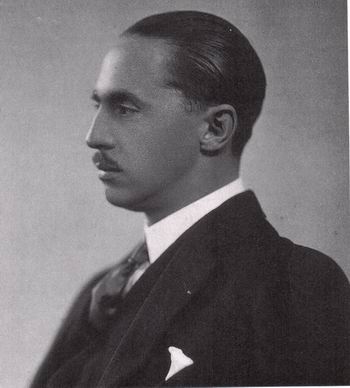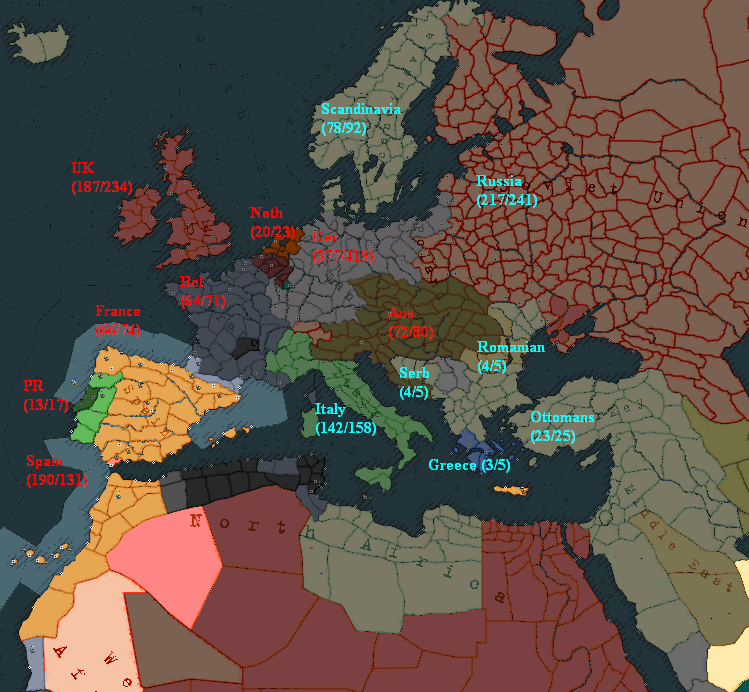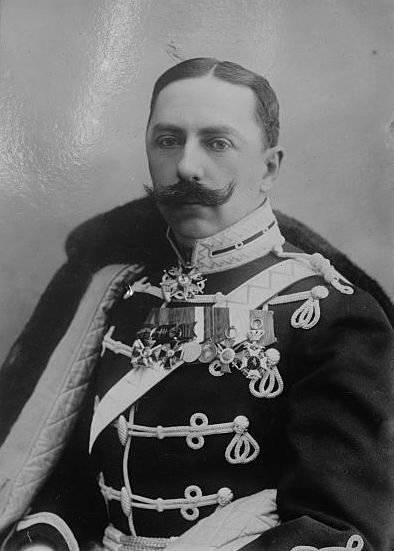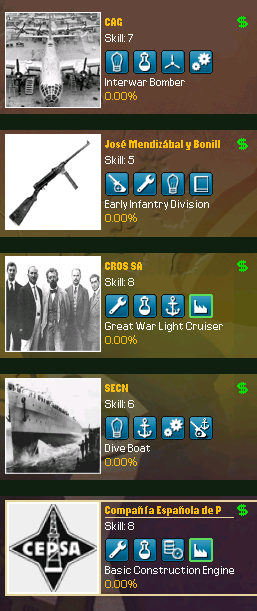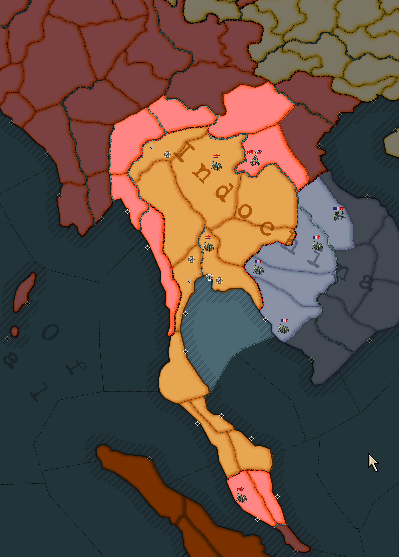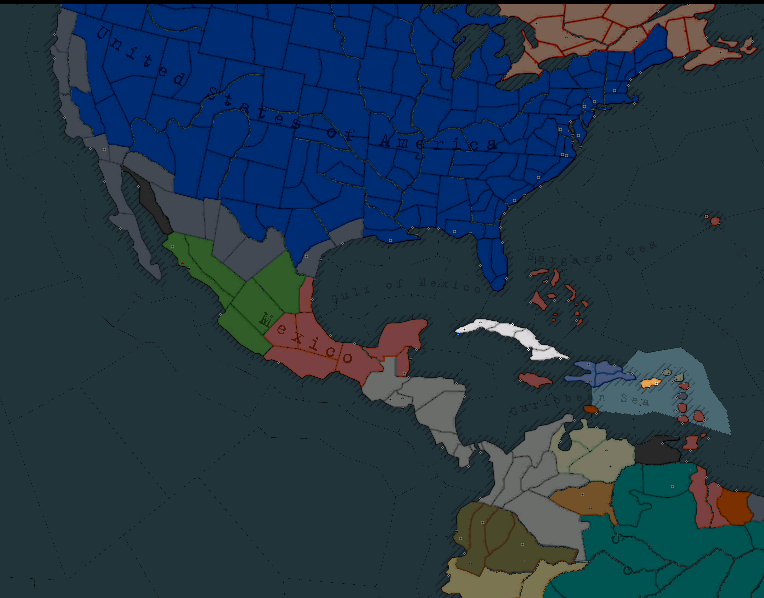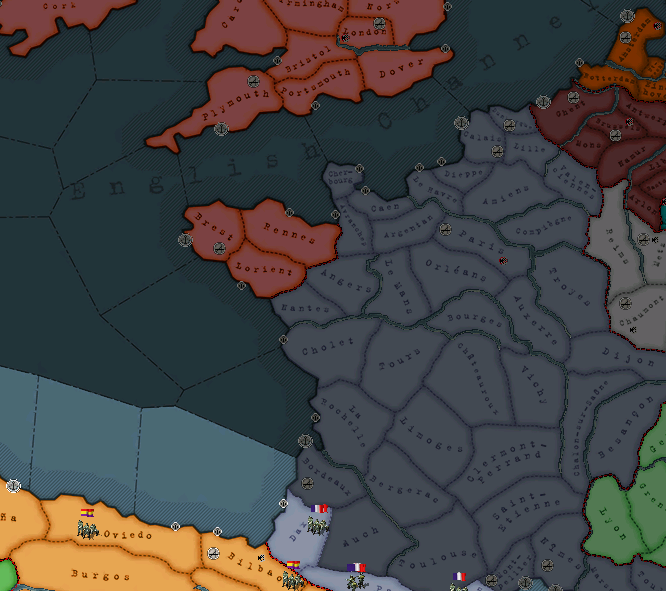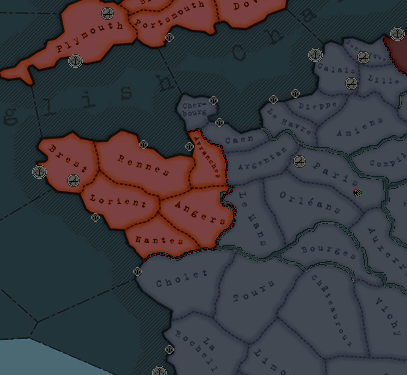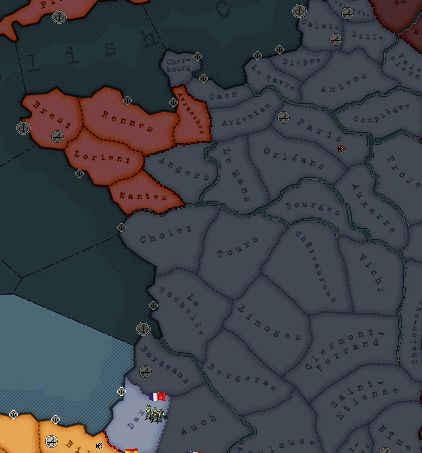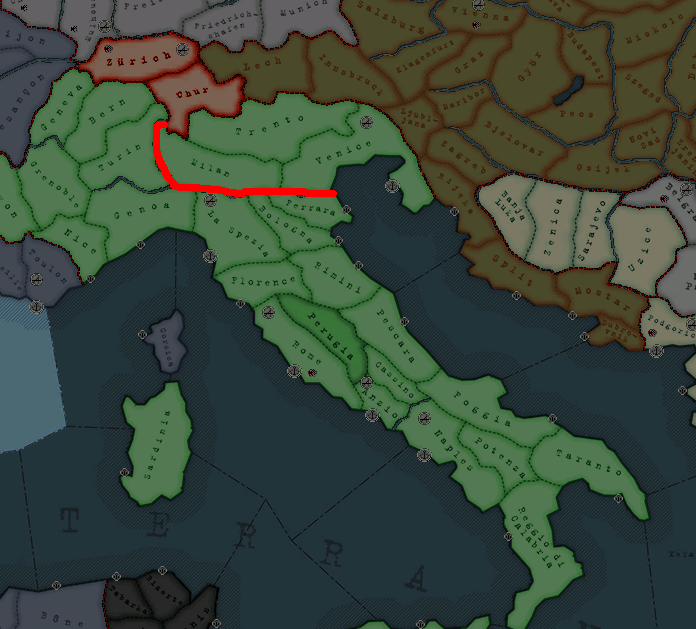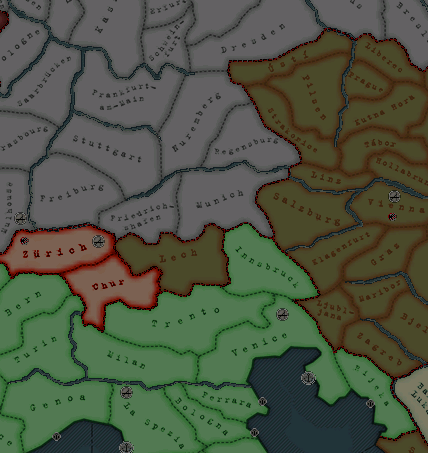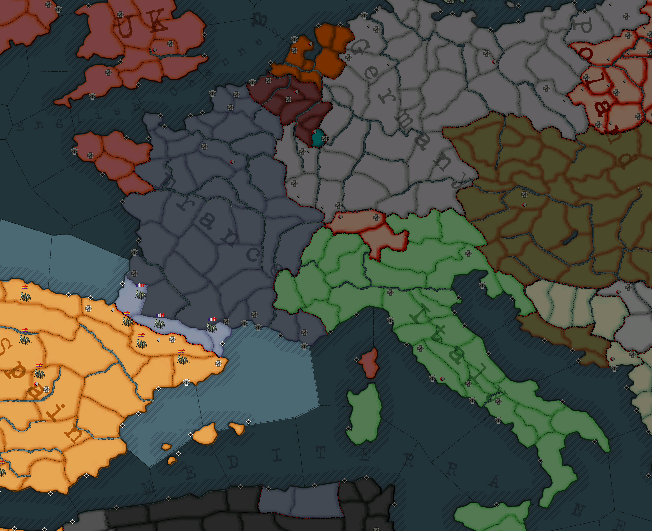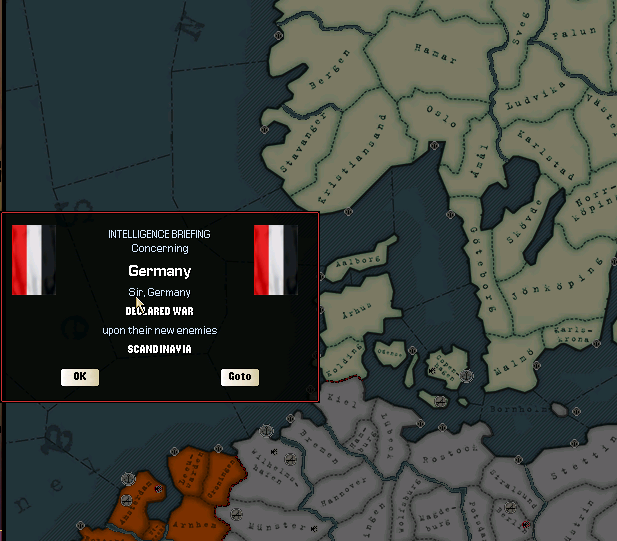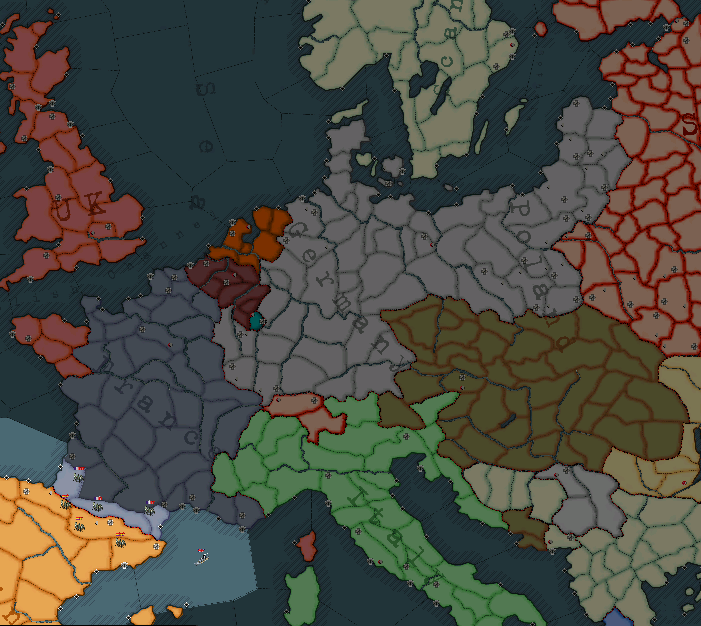Chapter 1: New King, New Agenda
Prince Sixtus succeeded James III as King of Spain and successor to the Carlist Empire. They were not father and son, nor grandfather and son, the succession was extended family with ties to Italian nobility, the Robert I Duke of Parma was Sixtus' father. The lack of an heir had made James III tutor this young prince into his one day successor.
James III was a great man, loved by his people and generally admired world wide as a modern enlightened figure. In the financial crisis of 1908-1912, James III used up a vast amount of the royal fortune to feed his public, taking his wealth from billions into the mere millions. This act of philanthropy was all it took to seal his place as a beloved and respected monarch. His reign from 1904-1936 (death in the early days of January) marked the growth of the Spanish economy, empire and military. It also saw the declining power and more symbolic monarch rise, with his favored democracy reigning supreme over him. Spanish might had grown at an astounding rate during his reign, the economy quadrupled and the military doubled in size. Siam was annexed and the closer ties with Russia were made, that still stand to this day.
His last radio address to his loyal and caring people was made on October 24, 1935. In this address he spoke of his decreasing health and of his heir apparent, Sixtus. He asked his people to show Sixtus with as much admiration and respect as they had shown him and that they would not have to worry about Sixtus being a trouble to the government. Not long after his address word got out that he had a stroke and was bedridden in his palace in Madrid, millions of people left flowers and notes, cried at the gates of their great king. His death came on January 3rd, 1936 and with it came a national day of mourning. His body was pulled by horses and sat in a carriage as it traveled through Madrid for one last appearance to the people.
Twenty thousand Spanish soldiers of the Madrid Guard marched behind his funeral carriage, some of the soldiers were in tears over the situation. As his body lay in state for the general public to view in his last days before his internment, several important world leaders showed their respects. Emperor Wilhelm II of Germany was one of the visitors who came to see his one time friend for one final goodbye.
Two days after the funeral parade it was announced in all media outlets in Spain that Sixtus I, King of Spain, now reigned. People cheered in the streets, the military made parades and other expensive activities were held. On January 12th he made his first meeting with the Prime Minister and begin discussing the policies that he most favored, even with severely limited power, the monarch was always seen as an adviser to the country.
First of his ideas was a quick and marvelous expansions in research, something the other politicians agreed on and wanted to inact themselves. His plans were superior to their own and were accepted to a vote, it passed and companies were sent notices on what was desired of them for more tax cuts and other government benefits.
Around the same time as all of this excitement was going on in Spain, the world was going to war. Britain and France were fighting it out in Africa and Asia. Spanish Thai colony was in between and military leaders in the region feared a British or French invasion of the area to gain use of our rail system. Orders were given to keep watch and attempt to be friendly to any fleeing natives from either countries colonies.
In the Americas Spain's dominion in Cuba was growing concerned with the power hungry nations around it. Mexico joined the British in war against France in attempted to regain lost lands, United States of Central America brought in Venezuela in their war against Brazil and Argentina and Paraguay went to war over border disputes. The entire region was a hellhole and alot of military power was at the disposal of many dictators.
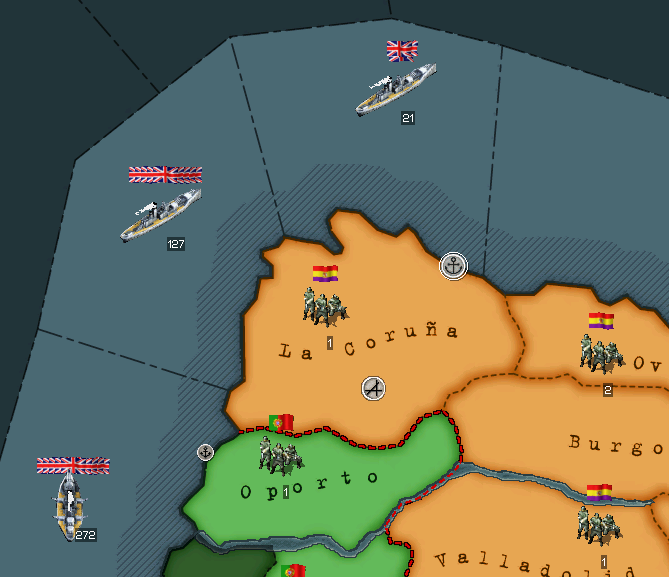
One of the main issues brought up by the new king was the lack of a naval force capable of defending our colonies and Cuba. This was a major issue and the British fleet stationed at Gibraltar was massive, some 250 capital ships were in this grand fleet and it was on it's way to fight France in the English Channel. While it passed Spain, many of our smaller vessels were ordered to take photographs of these ships and give our factories something to work with. British designs were advanced and the only shipyard in Spain that had any industrial power at all was in Galicia, and it was only built to maintain Spain's aging fleet in the late 1880's. A quick change was needed to bring about a new Spanish navy and it would take a couple years to implement.
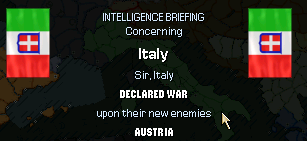
Just as it seemed nothing worse could happen, Italy and Austria, after years of land disputes and carious terrorist acts by Italian supported in the Venice area, declared war on one another. Austria was no match for Italy statistically, but it could yet turn in their favor once the troops hit the field. Both monarchs of Austria and Italy, friends of the late James III, urged Sixtus to pursue an alliance with them and to join the war. Sixtus, much in support of his peoples reactions, said no to both. He was a king of the people and peace, not of elite friendships and war.

